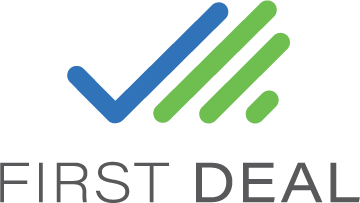
Value your business.
How much is my Business Worth?
One of the most important steps in selling a business is pricing if correctly. Knowing the value of your business will help you search for appropriate buyers. If you take it to market asking too much, you alienate your best prospects. Price is too low, and you risk leaving money on the table. Problem is, many business owners simply do not know the actual value of their companies.
If you want to sell your business, now or in the future, knowing the market value of your company is a vital first step in being able to assign it a defendable price – a price buyers and bankers will accept and that puts you in the best possible situation financially. It’s equally important to partner with professionals who can provide an accurate valuation. At First Deal, we will provide as honest assessment of the value of your business at no cost or obligations to you.
How is market value determined?
Formally valuing the business properly is a complex process during with many questions must be answered and multiple factors taken into account. Fundamentally, a buyer purchase a business for income or cash flow. Cash flow can be expressed in many ways, typically either a earning before interest, tax, depreciation and amortization(EBITDA) or seller’s discretionary earnings(SDE). In small business transaction we start with SDE or EBIDTA, as this is the common basis for establishing a price to take your business to market.
As you would imagine, the more cash flow there, the more likely the buyer will want to pay for it. But it’s just not that simple. Cash flow come with risk and determining the risk in cash flow is just as important. Some of these potential risk factor include market, competitiveness, customer concentration, key employee’s owner’s role in the business, vender concentration and legal exposure. Getting a proper valuation includes determining true cash flow (SDE or EBITDA) and analyzing key risk factors.
Determining a business’s value also requires effectively evaluating intangibles, such as customer good will, the company’s reputation in the greater community and the relationships that exist within the business. This is especially true in family-owned companies where multiple family members are involved in the business.



